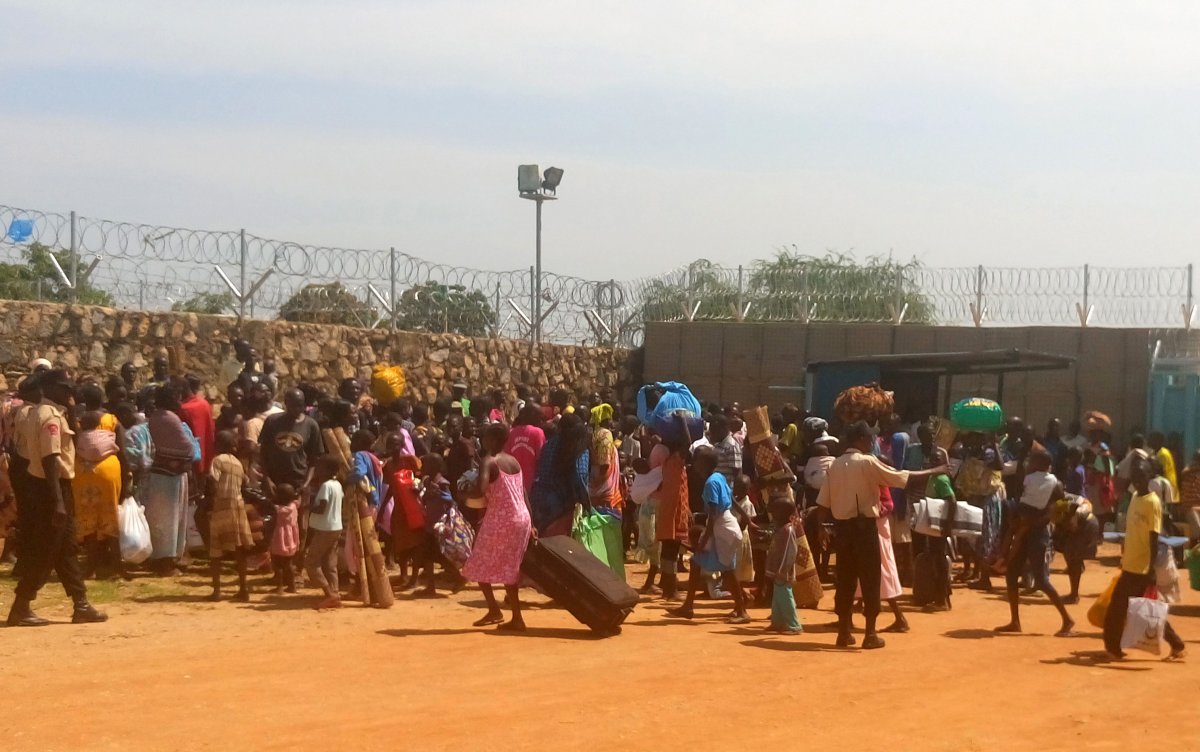JOHANNESBURG — Renewed fighting between opposing army forces has raised fears of a return to civil war in South Sudan, which over the weekend marked its fifth anniversary of independence while panicked residents hid inside their homes.

Aside from the scores of soldiers killed after gunfire erupted late Friday outside the presidential compound, at least two civilians died in a U.N. camp caught in the crossfire. At least two U.N. peacekeepers were killed and several wounded. Here’s a look at the situation for the estimated 12 million people in the East African country:
READ MORE: Ceasefire ordered after explosions, gunfights mark 5th day of violence in South Sudan
A fight for independence
Largely Christian South Sudan won its independence from Sudan, a majority Muslim country, in 2011 after years of fighting. The new country’s emergence was cheered by the international community including the United States.
With oil resources supporting its young economy, optimism was high. But tensions emerged between the country’s top leaders, President Salva Kiir and Vice President Riek Machar, and supporters of each.
READ MORE: Critically endangered forest elephants found in war-torn South Sudan
The civil war
In December 2013, soldiers loyal to either side skirmished in the capital, Juba, and the fighting spread to other parts of the country. The violence was especially worrying because of the ethnic tensions involved, as many supporters of the president were Dinka and supporters of Machar, now a rebel leader, were mostly Nuer.
As fighting raged into 2015, tens of thousands of people were reported killed, and an estimated 2 million people fled their homes. Meanwhile, the U.N. and others warned repeatedly of a humanitarian disaster as the civil war made it all but impossible to deliver aid to many areas of the country.
Troops on both sides have been accused of horrific human rights abuses, including gang rapes and murders of civilians along ethnic lines. A U.N. panel of experts has said Kiir and Machar themselves bear command responsibility for troops who allegedly committed crimes.
WATCH: Conflict pushes up refugee numbers on 4th anniversary of South Sudan’s independence
A fragile peace deal
In August 2015, after intense pressure from the international community, Kiir and Machar signed a peace deal that called for a two-year transitional government of ministers and parliamentarians from the two sides before new elections.
But fighting continued in parts of the country even as the fragile deal moved forward. In April, Machar returned to the capital to again take up the post of vice president, saying that “peace is the only choice for us to relieve our people the undeserved suffering associated with armed conflict enforced upon them.”
READ MORE; UN food chief says overwhelming needs in crises outstrip donor generosity
Fighting erupts again
South Sudan’s opposing army factions have been stationed in Juba since April as part of the peace deal. They are meant to hold joint patrols but have yet to work together and remain stationed in separate areas.
On Thursday, soldiers from the opposing factions exchanged gunfire in the capital, leaving five soldiers dead. A day later, as Kiir and Machar met at the presidential compound about the incident, heavy gunfire erupted outside and soon spread to other parts of the capital city.
The fighting continued on and off during the weekend and started afresh on Monday morning, despite a joint call for calm by Kiir and Machar.
Some international organizations and businesses have started evacuating workers from South Sudan, a further blow to its severely weakened economy. The International Monetary Fund this month said the country’s currency has depreciated by almost 90 percent since December.
READ MORE: Ethiopia appeals for international help to feed thousands of refugees
Peacekeepers and criticisms
A U.N. peacekeeping mission had more than 13,000 troops and police in South Sudan as of the end of March, but the force has come under criticism for hesitating to protect civilians, with deadly results. Last month, the medical aid group Doctors Without Borders reported that peacekeepers were slow to intervene in an attack in February on a U.N. camp for thousands of displaced people in Malakal and that at least 25 people were killed. The U.N. said some units and officers who failed to respond would be sent home.



Comments